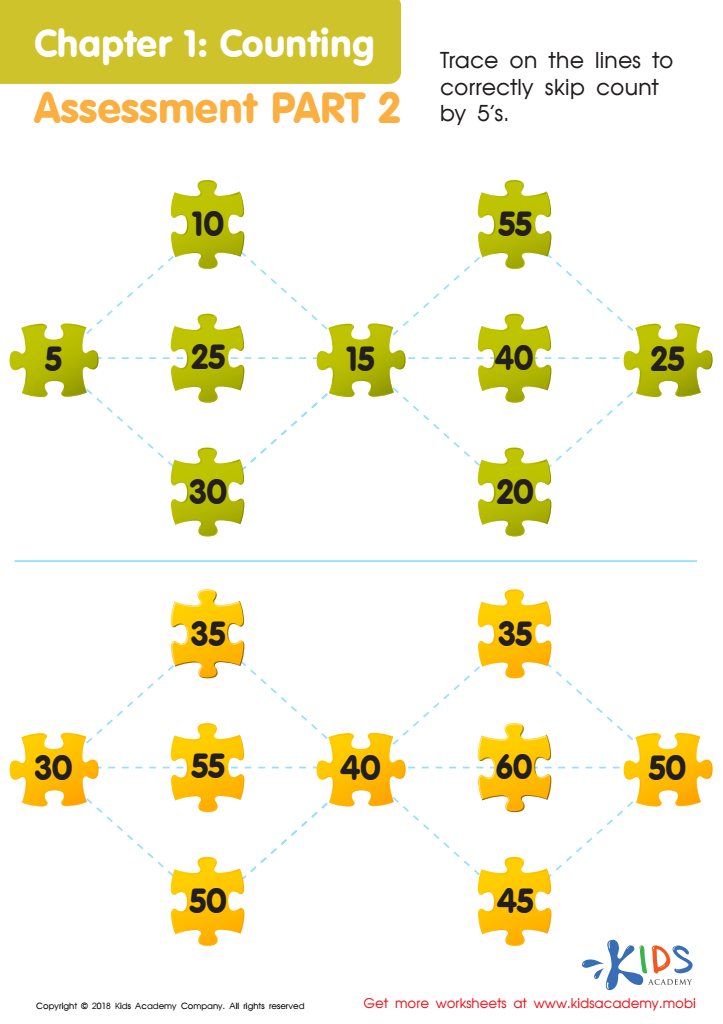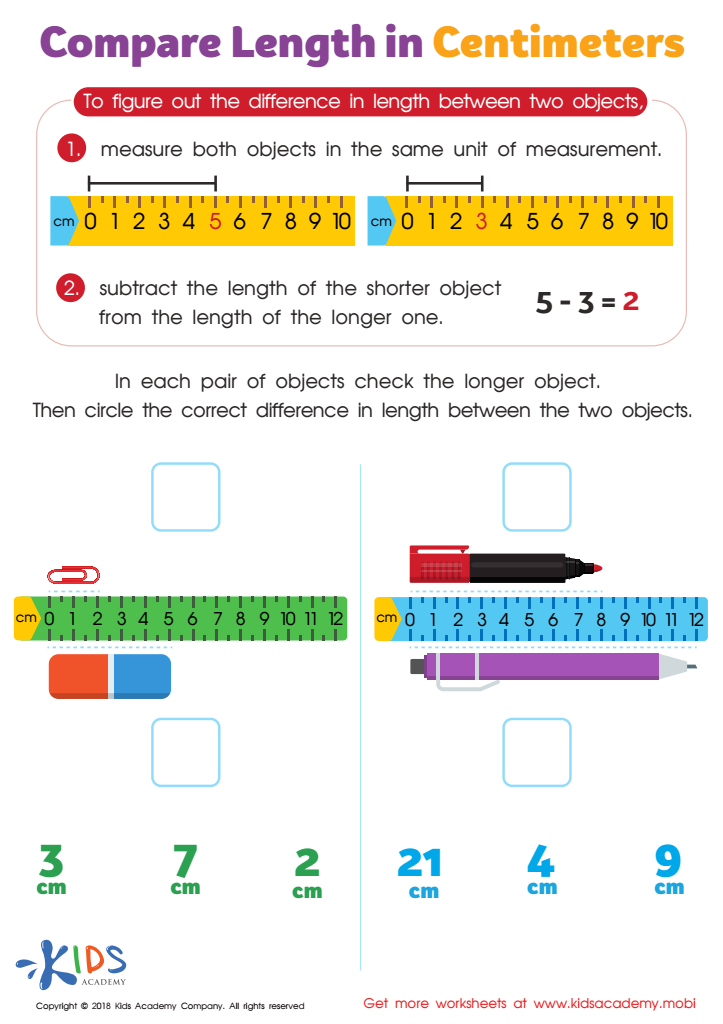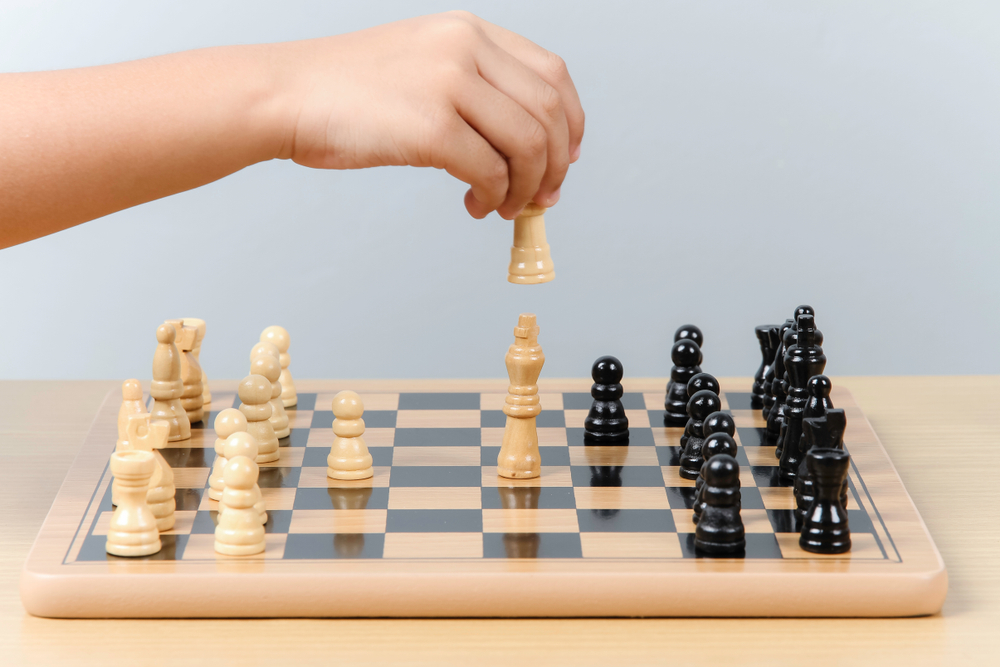Applying math skills Math Worksheets for Ages 4-7
3 filtered results
-
From - To
"Applying Math Skills" worksheets for ages 4-7 on Kids Academy provide engaging educational activities to help young learners practice essential math skills. These printables cover topics such as addition, subtraction, counting, and number recognition, designed to build a strong mathematical foundation. By solving fun and colorful exercises, children enhance their critical thinking and problem-solving abilities, making math both enjoyable and effective. Each worksheet is tailored to suit early learners, fostering confidence and a love for learning. Perfect for parents and educators aiming to boost their child's proficiency in math through interactive and practical exercises. Free and easy to print for at-home or classroom use.


Counting: Assessment 2 Worksheet


Compare Length in Centimeters Worksheet
Applying math skills for children ages 4-7 is crucial for several reasons. First, early math skills form the foundation for higher-level math concepts and problem-solving abilities. When children understand basic math, such as counting, addition, and subtraction, they are better prepared to tackle more complex topics in the future.
Moreover, math is not just a subject studied in isolation but a part of everyday life. By applying math skills early, children learn how to use these concepts in real-world scenarios, such as measuring ingredients for a recipe, telling time, or managing money. These practical applications make math relevant and exciting for young learners.
Cognitive development also benefits from early math education. Solving math problems stimulates brain regions associated with logic, pattern recognition, and critical thinking. As a result, children who engage with math at a young age tend to develop stronger analytical and reasoning skills.
Additionally, math skills contribute to a child's confidence and academic success. Mastery of math can boost self-esteem and reduce anxiety related to the subject, fostering a positive attitude towards learning in general. Therefore, parents and teachers should integrate math into daily routines and early education to ensure children build a robust foundation for future success.


 Assign to My Students
Assign to My Students
















